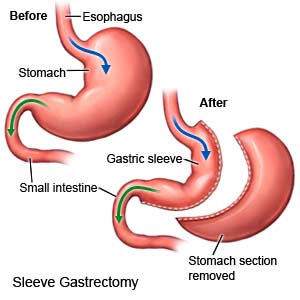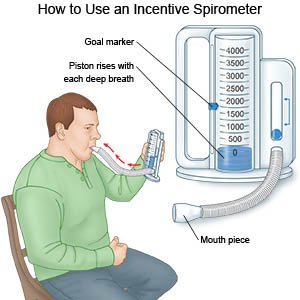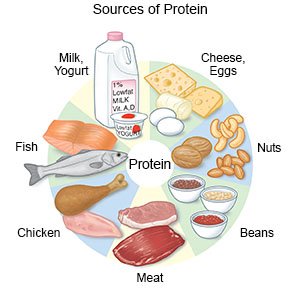Laparoscopic Sleeve Gastrectomy
Medically reviewed by Drugs.com. Last updated on Apr 6, 2025.
A laparoscopic sleeve gastrectomy (LSG) is surgery to remove most of your stomach. The remaining stomach forms a tube or sleeve. You will feel full faster and have a decreased desire for food.
 |
DISCHARGE INSTRUCTIONS:
Call your local emergency number (911 in the US) if:
- You have trouble breathing.
- You have chest pain that does not go away or gets worse.
- You cough up blood.
Seek care immediately if:
- Your arm or leg feels warm, tender, and painful. It may look swollen and red.
- Your surgery area is draining pus or looks red or swollen. It may feel warm, painful, or tender.
- You have a fever higher than 101°F (38.3°C).
- Your pain does not get better with medicine, or it gets worse.
- Your bowel movements are black or bloody.
- You cannot stop vomiting.
Call your doctor or surgeon if:
- You have nausea that does not get better with medicine, or it gets worse.
- You are vomiting.
- You have pain in your abdomen or on the right side of your body under your ribs.
- You are constipated.
- You have questions or concerns about your condition or care.
Drugs used to treat this and similar conditions
Wegovy
Wegovy is a once-weekly semaglutide injection used for chronic weight management and to reduce ...
Ozempic
Learn about Ozempic (semaglutide) for type 2 diabetes treatment, weight management, cardiovascular ...
Mounjaro
Mounjaro (tirzepatide) is FDA-approved to manage type 2 diabetes in adults. It lowers blood sugar ...
Zepbound
Zepbound (tirzepatide) is an FDA-approved weekly injection for weight loss and obstructive sleep ...
Adipex-P
Adipex-P (phentermine) is an appetite suppressant used togther with diet and exercise to treat ...
Contrave
Contrave is an anorexiant and is used to help manage weight in obese or overweight adults with ...
Phazyme
Phazyme is used for endoscopy or radiology premedication, functional gastric disorder, gas ...
Medicines:
You may need any of the following:
- A multivitamin may be recommended by your healthcare provider or dietitian. This will help replace vitamins and minerals you may lose from eating less food.
- Reflux medicine helps decrease stomach acid and heartburn.
- Nausea medicine may be needed to help decrease nausea and prevent vomiting.
- Acetaminophen decreases pain and fever. It is available without a doctor's order. Ask how much to take and how often to take it. Follow directions. Read the labels of all other medicines you are using to see if they also contain acetaminophen, or ask your doctor or pharmacist. Acetaminophen can cause liver damage if not taken correctly.
- Prescription pain medicine may be given. Ask your healthcare provider how to take this medicine safely. Some prescription pain medicines contain acetaminophen. Do not take other medicines that contain acetaminophen without talking to your healthcare provider. Too much acetaminophen may cause liver damage. Prescription pain medicine may cause constipation. Ask your healthcare provider how to prevent or treat constipation.
- Blood thinners help prevent blood clots. Clots can cause strokes, heart attacks, and death. Many types of blood thinners are available. Your healthcare provider will give you specific instructions for the type you are given. The following are general safety guidelines to follow while you are taking a blood thinner:
- Watch for bleeding and bruising. Watch for bleeding from your gums or nose. Watch for blood in your urine and bowel movements. Use a soft washcloth on your skin, and a soft toothbrush to brush your teeth. This can keep your skin and gums from bleeding. If you shave, use an electric shaver. Do not play contact sports.
- Tell your dentist and other healthcare providers that you take a blood thinner. Wear a bracelet or necklace that says you take this medicine.
- Do not start or stop any other medicines or supplements unless your healthcare provider tells you to. Many medicines and supplements cannot be used with blood thinners.
- Take your blood thinner exactly as prescribed by your healthcare provider. Do not skip a dose or take less than prescribed. Tell your provider right away if you forget to take your blood thinner, or if you take too much.
- Take your medicine as directed. Contact your healthcare provider if you think your medicine is not helping or if you have side effects. Tell your provider if you are allergic to any medicine. Keep a list of the medicines, vitamins, and herbs you take. Include the amounts, and when and why you take them. Bring the list or the pill bottles to follow-up visits. Carry your medicine list with you in case of an emergency.
Self-care:
- Care for your surgery area as directed. When you allowed to bathe, carefully wash the area with soap and water. Dry the area and put on new, clean bandages as directed. Change your bandages when they get wet or dirty.
- Do deep breathing and coughing as directed. Take deep breaths and cough 10 times each hour or as directed. This will help prevent pneumonia. You may need to hold a pillow on your abdomen for support and comfort. Take a deep breath and hold it for as long as you can. Let the air out and then cough strongly. Deep breaths help open your airway. You may be given an incentive spirometer to help you take deep breaths. Put the plastic piece in your mouth and take a slow, deep breath. Then let the air out and cough.

- Take short walks often throughout the day. Walks help prevent blood clots. Do not do any strenuous activity or lift more than 10 pounds. Ask your healthcare provider about the best exercise plan for you at your follow-up visit. Ask when you can return to work or school.

- Go to therapy. Therapy may include working with a counselor to understand your reasons for overeating. You may want to join a support group to talk with others who have had roux-en-Y gastric bypass surgery.
Follow your nutrition plan:
Ask your dietitian or nutritionist any questions you have about your nutrition plan. The plan will include which foods to eat and how much of each to eat during a meal.
- Prevent dumping syndrome. Dumping syndrome happens when high-sugar or high-fat foods and drinks go into your intestine too quickly after a meal. Dumping syndrome may also occur if you drink liquids during a meal. Dumping syndrome may cause you to sweat, or feel faint, weak, and dizzy. You may have stomach cramps, an upset stomach, and diarrhea.
- Eat slowly. Chew your food well before you swallow. Large bits of food may cause choking or may block your stomach. If you eat too much or do not chew well enough before you swallow, you may vomit.
- Eat 3 small meals each day. Do not eat snacks between meals unless your healthcare provider says it is okay. Stop eating when you feel full, even if you have not eaten all of your meal. If you often eat too much and do not follow instructions, you may stretch out your stomach pouch.
- Eat nutritious foods. Eat plenty of protein. Foods that contain protein include chicken, fish, eggs, and dairy products. You may need protein drinks for the first week after surgery. Avoid candy, cookies, ice cream, and fried foods.

- Drink liquids between meals. Wait at least 1 or 2 hours after a meal before you drink liquids. Do not drink liquids with meals. Drink water, diet drinks, or other drinks that have few or no calories. Do not drink carbonated liquids, such as soft drinks.
Pregnancy after surgery:
If you are a woman of childbearing age, your healthcare provider will talk to you about family planning.
- It is important that you do not get pregnant for 12 to 18 months after surgery. Then your pregnancy will need to be monitored for your safety and your baby's safety. Your provider will tell you how much weight is safe for you to gain. He or she will help you create healthy meal plans so you get the right nutrition without gaining too much weight.
- Tell your provider if you want to prevent pregnancy. He or she can help you choose the right kind of birth control for you. You may not be able to use birth control pills because you will not be able to absorb them fully after surgery.
Follow up with your doctor or surgeon as directed:
You will need to come in to have your surgery area checked. You will also need to come in over time to have your vitamin levels checked and to monitor your progress. Write down your questions so you remember to ask them during your visits.
© Copyright Merative 2025 Information is for End User's use only and may not be sold, redistributed or otherwise used for commercial purposes.
The above information is an educational aid only. It is not intended as medical advice for individual conditions or treatments. Talk to your doctor, nurse or pharmacist before following any medical regimen to see if it is safe and effective for you.
Further information
Always consult your healthcare provider to ensure the information displayed on this page applies to your personal circumstances.
